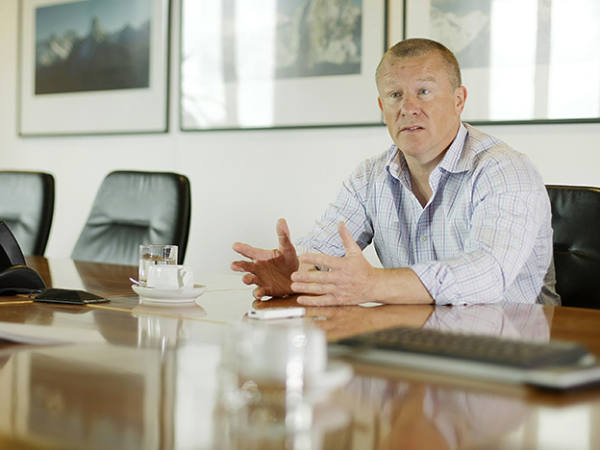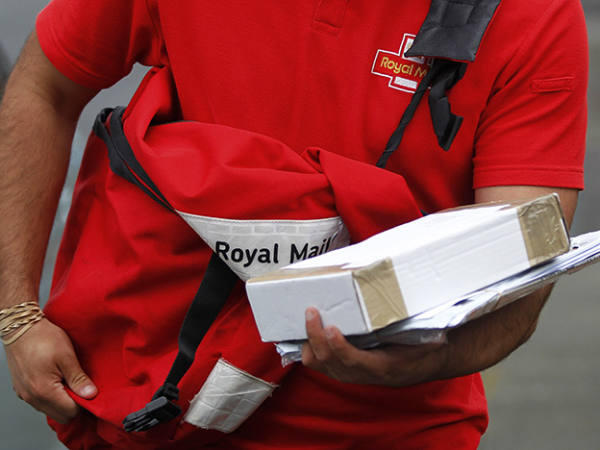Bruce Stout, manager of Murray International (MYI), is very concerned about the "horribly disfigured economic trends" that he sees today. "People always look for familiarity in order to make judgments. But the past isn't going to be a guide to the future," he says. "No one has ever seen bond yields like this before. We've never had the level of indebtedness that we have today in the public sector and central banks.
"The next trick is to move the debt mountain. Quantitative easing has failed. Do you have debt forgivers, for example, writing off student loans? Young people will never get to be household owners because of debt. But debt forgiveness is another can of worms.
"This is a low growth, low interest, low yield environment that is not comparable to the 1960s. People haven't seen it before because the 1960s wasn't 'no growth'. This is a very harsh environment for companies to operate in. Expectations have to be adjusted down."
Murray International is a popular global income investment trust that has traded at a premium since 2008 and is a longstanding member of the IC Top 100 funds.
Mr Stout is also worried about the "theft of savings". "Central bankers have slashed interest rates to 0 per cent and the prudent saver has picked up the tab for that. Now savers are even being charged to hold their money in the bank - a pretty sad state of affairs.
"Until 2008 the average real interest rate was 2 per cent. Since 2008 it's been -2 per cent.
"Making people go from cash to bonds and equities in search of income is not on. They are completely different risks. The end game is that the income fund no longer gives any income as prices are forced up. The widespread fear and concern over savings is genuine."
But he says none of this has changed his investment philosophy, which focuses on capital preservation and income. "We just buy good quality companies and hold them for a long time," he says. "Diversification is our goal. Income and dividend growth is very important.
"We look at a company's balance sheet. Is the dividend covered by natural free cash flow? Lots of UK companies have dividends that are not covered, but if they were cut it wouldn't go down well with shareholders. We don't buy yield, we buy balance sheets that can deliver."
He has recently taken some profits on companies in the portfolio that have done well, including Johnson & Johnson (JNJ: NYQ) and Unilever Indonesia (UNVR:JKT) and added to Soquimich (SOQUICOM:SGO), a potash producer in Chile because "energy and minerals are out of favour". He has also topped up on Nordea (NDA SEK:STO), a leading Swedish banking group that has recently increased its dividend. "This company is boring and excellent," he says. "We think the more boring the better, and if it's boring and unloved, even better."
In 2014, Mr Stout reduced the trust's equity exposure, putting money into emerging markets debt. "Emerging markets have underperformed for five years now and a fall in oil prices is a big bonus for countries such as Indonesia," he says.
Mr Stout aims to hold different types of unique businesses in the portfolio. And he pays little attention to sector diversification. "Sectors are just labels," he says, giving the examples of two of his holdings to explain further.
"Taiwan Semiconductor (2330:TAI) is a technology company in that it makes chips, but it is also industrial and cyclical in that the end market is automotives.
"Casino Guichard Perrachon (CO:PAR) is not a casino but a retailer. It is domiciled in France, but is big in Thailand and Vietnam. Five years ago it was a French retailer, but now it is effectively an emerging markets retailer. It's probably our most misunderstood stock. But it has a clear strategy in the next five years of where it wants to go.
"We look at companies on a sector basis, but you have to take it with a pinch of salt. You've got to look at where companies got their profits from, not where they are domiciled."
MURRAY INTERNATIONAL (MYI) KEY FACTS
| PRICE | 1034p | GEARING | 14%* |
| AIC SECTOR | Global Equity Income | NAV | 99.84p |
| FUND TYPE | Investment trust | PRICE PREMIUM TO NAV | 4.14% |
| Market cap | £1,329.8 million | ONGOING CHARGE | 0.67% |
| No OF HOLDINGS | 65 | YIELD | 4.20% |
| SET UP DATE | 1907 | MORE DETAILS | http://www.murray-intl.co.uk/ |
| MANAGER START DATE | 16-Jun-04 |
Source: Morningstar and *AIC as at 24 February 2015
Performance of Murray International vs FTSE World index %
| 2015* | 2014 | 2013 | 2012 | 2011 | 2010 | |
|---|---|---|---|---|---|---|
| Price | 2.2 | 1.7 | 4.1 | 18.9 | 1.3 | 27.2 |
| NAV | 3.6 | 1.9 | 5.9 | 14.1 | 0.5 | 23.9 |
| FTSE World Total Return GBP | 2.1 | 11.2 | 22.3 | 11.8 | -5.8 | 16.2 |
Source: Morningstar, *to 31 January 2015.
Murray International's latest dividends
| Dividend | Ex-dividend date | Financial Year |
|---|---|---|
| 10p | 08-Jan-15 | 2014 |
| 10p | 09-Oct-14 | 2014 |
| 10p | 09-Jul-14 | 2014 |
| 14.5p | 02-Apr-14 | 2013 |
| 9.5p | 08-Jan-14 | 2013 |
TOP TEN EQUITY HOLDINGS (as at 31 January 2015)
| Holding | % |
|---|---|
| ASUR | 4.4 |
| British American Tobacco | 4.3 |
| Unilever Indonesia | 3.6 |
| Taiwan Semiconductor | 3.5 |
| Taiwan Mobile | 3.1 |
| Nordea | 2.9 |
| Philip Morris | 2.8 |
| Zurich Insurance | 2.7 |
| Roche | 2.7 |
| TELUS | 2.5 |
Geographic domicile of equity holdings (as at 31 January 2015)
| Region | % |
|---|---|
| Asia Pacific ex Japan | 19.3 |
| Europe ex UK | 18.7 |
| Latin America & Emerging Markets | 18.4 |
| North America | 15 |
| United Kingdom | 10.8 |
| Japan | 2.1 |
| Africa | 1.7 |
| Fixed income holdings | 14 |
| TOTAL | 100 |









